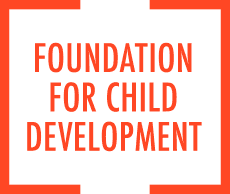https://www.fcd-us.org/journals-publish-two-evaluations-of-the-tulsa-ok-prekindergarten-program/
Research on Tulsa, Oklahoma’s universal PK program finds that the PK experience enhances the school readiness of young children. While the Journal of Human Resources paper, based on 2001 data, finds greater positive effects for minority and low-income children, the Developmental Psychology, based on 2003 data, finds substantial positive effects for children across all racial-ethnic and socioeconomic backgrounds.
Executive Summary
Promoting School Readiness in Oklahoma
The Journal of Human Resources, 2005, Vol. 40. No. 3 (Summer), 533-558
The Effects of Universal Pre-K on Cognitive Development
Developmental Psychology, 2005, Vol. 41, No. 6 (November), 872-884
Click here to view Promoting School Readiness in Oklahoma The Journal of Human Resources, 2005, Vol. 40. No. 3 (Summer), 533-558. Click here to view The Effects of Universal Pre-K on Cognitive Development in Developmental Psychology, 2005, Vol. 41, No. 6 (November), 872-884.
To view additional work by the Georgetown University Center for Research on Children in the United States, visit http://www.crocus.georgetown.edu/.
Promoting School Readiness in Oklahoma, published in The Journal of Human Resources, analyzes the school readiness of children who attended Tulsa Public Schools (TPS) PK during the 2000-2001 school year. Authors William T. Gormley, Jr. and Ted Gayer measured school readiness by using a 26-item aptitude test developed by TPS. TPS administered the test in August 2001 to students entering TPS PK and students entering TPS Kindergarten. The test measured cognition, language, motor skills, and socioemotional development. The analysis reveals that, in all dimensions but socioemotional development, the TPS universal PK program offered tangible benefits to children. Measures of socioemotional development were considerably weaker than other measures. Positive effects were greatest for Hispanic children, followed by black children, and children who qualified for the full free-lunch program.
The Effects of Universal Pre-K on Cognitive Development, published in Developmental Psychology, reports findings from a similar study conducted in September 2003. Authors William T. Gormley, Jr., Ted Gayer, Deborah Phillips, and Brittany Dawson analyze the school readiness of children who attended the universal PK program in Tulsa during the 2002-2003 school year. These findings augment the findings of the earlier TPS PK study. The data show that the PK program benefited children from all racial-ethnic groups: Hispanics, Blacks, Native Americans, and Whites. Benefits were also found for children of all socioeconomic backgrounds, not only those eligible for full free-lunch. Children participating in the PK program experienced gains of 7 to 8 months in letter-word identification, 6 to 7 months in spelling, and 4 months in applied problems compared to children who did not experience the PK program.
The authors believe that differences in the aptitude test used in the two studies can explain the differences in the results. In the 2003 study, the authors measured aptitude by administering three subscales of the Woodcock-Johnson Achievement Test: letter-word identification, spelling, and applied problems. In contrast to the homegrown TPS test used in the earlier study, the Woodcock-Johnson Test is nationally normed. It has been widely used in studies of early education, including studies with children of differing ethnic and socioeconomic backgrounds. The Woodcock-Johnson Achievement Test appears to have better captured the effects of PK for White children and more socioeconomically advantaged children.
In both studies, the authors used a strict birthday eligibility criterion to compare children who had just completed the Tulsa Public Schools (TPS) PK program with children who were about to begin the program. This birthday cut-off qualification provided the authors with a regression-discontinuity design that reduced the threat of selection bias. The fundamental premise of this design was that a child who just made the cut-off date and a child who just missed the cut-off date should have similar characteristics. All of the parents of these children wanted to enroll their students in the TPS PK program.
The authors conclude that a universal PK program financed by state general revenues and implemented by public schools can provide tangible benefits to children. They believe that high teacher education requirements, willingness to compensate PK teachers at the same level as elementary and secondary teachers, and a strong emphasis on academic instruction contribute to the effectiveness of the Oklahoma program. In order for the Oklahoma experience to be replicated elsewhere, the authors call for more research into the factors that contribute to the outcomes of the Tulsa PK program.
